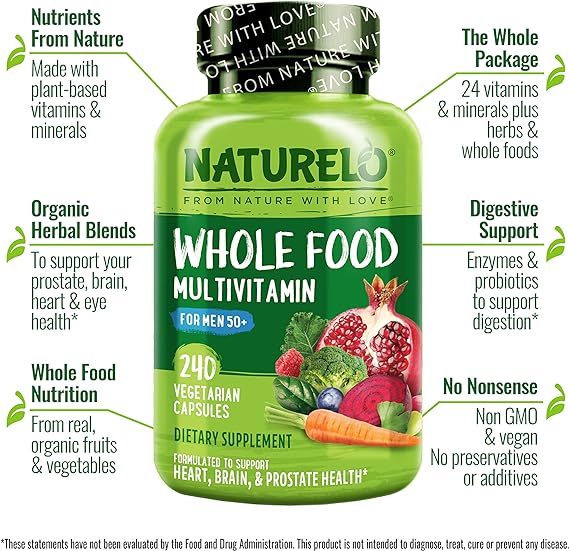Nutritional Healthcare supplements
Nutritional healthcare supplements are products designed to augment your daily intake of nutrients, including vitamins and minerals. They come in various forms, such as tablets, capsules, powders, liquids, and gummies.
Nutritional supplements are not meant to replace a balanced and healthy diet but rather to fill dietary gaps ensuring an adequate intake of essential nutrients.
While supplements can help people with specific dietary needs and medical conditions, it’s always advisable to consult with a healthcare professional before starting any supplement regimen.
Best Nutritional supplements good for you?
The efficacy of nutritional supplements greatly depends on an individual’s dietary needs and overall health. While they can help fill nutritional gaps, they are not a substitute for a balanced diet.
Additionally, they should always be used under medical supervision, as overdosing or misuse could potentially lead to health complications. It’s essential to understand that supplements are meant to complement your diet and should not replace nutritious whole foods.
Always consult with a health professional before starting any new supplement regimen.
What are Nutritional Gaps?
Nutritional gaps refer to the discrepancies between the nutrients our body requires for optimal functioning and those actually obtained from our diet.
This state of deficiency can be due to a lack of diversity in the diet, poor dietary habits, or the consumption of highly processed foods low in essential nutrients.
Nutritional gaps can lead to various health issues, including fatigue, weakened immune system, and slowed growth and development in children.
Hence, it’s crucial to aim for a varied and balanced diet to ensure the intake of necessary vitamins, minerals, and other essential nutrients.
Reason For Imbalanced Diet
Several factors contribute to an imbalanced diet.
Firstly, a lack of knowledge about proper nutrition often leads to uninformed choices about what foods to consume.
Secondly, the convenience and palatability of processed foods, which are typically high in sugar, salt, and unhealthy fats, can motivate their overconsumption.
Thirdly, cost can be a significant factor, as fresh fruits, vegetables, and other nutrient-dense foods can be more expensive than processed alternatives.
Lastly, lifestyle and cultural factors, such as long work hours and fast-paced living, can also encourage unhealthy eating habits. It’s essential to address these factors to achieve a balanced diet and optimal health.
The Factors You Should Consider For Nutritional Supplements
When considering nutritional supplement use, it is crucial to evaluate various factors.
Firstly, identify the nutrients you may be lacking in your diet. Blood tests can help determine your nutritional statuses.
Secondly, research on the safety and efficacy of the supplement you are considering. This includes looking into the manufacturer’s credibility and the presence of any side effects.
Thirdly, consider the dosage and timing. Nutritional Supplements can interact with medications or conditions, so be sure to discuss this with your health professional.
Lastly, remember supplements are intended to supplement a healthy diet and not replace it.
Indication Signs For Nutritional Supplements
Certain signs might indicate a need for dietary supplements.
These can range from fatigue, hair loss, or skin problems, which might suggest deficiencies, to more specific symptoms such as muscle cramps, which might indicate a lack of magnesium or potassium in your diet.
If you’re experiencing prolonged periods of stress, you might deplete your body of certain nutrients faster and therefore could benefit from a supplement.
Additionally, certain life stages, such as pregnancy or aging, can necessitate the need for nutritional supplements.
However, it is always recommended to consult with a medical professional before starting any nutritional supplement regimen, as these symptoms can also be indicative of other health issues

The Best Age To Start Nutritional Supplements
he appropriate age to start taking supplements can vary greatly and depends on individual health needs.
Generally, supplements are not necessary for healthy children who consume a varied diet.However, in some cases, such as for children who are picky eaters or those who follow a vegan diet, a health professional might recommend certain supplements.
As adults, nutrient requirements can change due to lifestyle factors or various health conditions. Therefore, some adults might need to take supplements to ensure they’re getting the nutrients needed.
The elderly may also need additional supplements due to decreased nutrient absorption.However, it is crucial to consult with a healthcare provider before beginning any supplement regimen at any age.
They can assess your personal health needs and guide you in the right direction.
Check Points To Start Nutritional Supplements
Before embarking on a supplement regimen, there are several checkpoints to consider:
1. Deficiency Identification: Understand which nutrients are lacking in your diet. This can be determined through a blood test or a detailed discussion with a healthcare professional.
2. Safety and Efficacy: Research on the safety and effectiveness of the supplements you are considering. Verify the manufacturer’s credibility and ascertain if there are any potential side effects.
3.Dosage and Timing: Consider the appropriate dosage and timing for taking the supplement. Some supplements can interact negatively with certain medications or conditions, so it’s crucial to discuss this with a healthcare professional.
4. Diet: Evaluate your diet. Remember, supplements are meant to complement a healthy diet, not replace it.
5. Consultation: Most importantly, consult with a healthcare professional. They can provide personalized advice based on your overall health, diet, lifestyle, and any existing medical conditions.
Always remember that the decision to start a supplement regimen should not be taken lightly. It requires a thorough understanding of your health status and nutritional needs.
Our Recommendation For Best Health Care Supplements
In our assessment, a few supplements stand out for their broad health benefits:
Multivitamins:
These provide an array of essential vitamins and minerals that may be lacking in your diet, functioning as a good general supplement for most people.
Omega-3 Fatty Acids:
These are beneficial for heart health and brain function. They’re commonly found in fish oil supplements, but there are also plant-based options for those on a vegetarian or vegan diet.
Vitamin D:
Especially important for people living in areas with limited sunlight, Vitamin D helps maintain healthy bones and teeth, and it might also protect against certain diseases.
Probiotics:
These can improve digestive health by boosting the beneficial bacteria in your gut. They can also support immune function.
Calcium and Magnesium:
These are essential for bone health, and magnesium also plays a role in hundreds of metabolic functions.
Remember, these recommendations are general and may not be suitable for everyone.
Always consult with a healthcare professional before starting any new supplement regimen. They can provide personalized advice based on your health needs and lifestyle.






